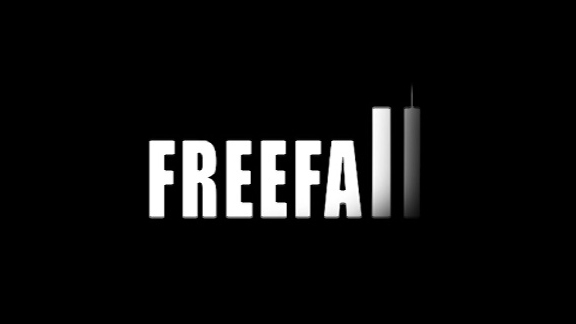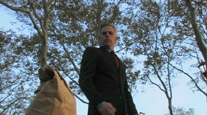
FREEFALL
STARRING NEAL MAYER
CINEMATOGRAPHY BY BOGDAN TYBURCZY
PRODUCED BY ELLEN BOLLERT
WRITTEN AND DIRECTED BY PAWEL PAWELCZAK
BRONZE
CHRIS AWARD
2007

Featured in
Le Project Lower Manhattan,
UQAM
"Powerful … thought provoking
and controversial."
- 2008 CLEVELAND INTERNATIONAL
FILM FESTIVAL JURY
Freefall is a psychological snapshot of a Manhattan businessman suffering from post-traumatic stress syndrome.
During a casual lunch break in the park, a sensory trigger – the sound of a low-flying plane – forces him to relive the events of 9/11. What follows is a struggle between his subconscious, which attempts to push the long-buried trauma to the surface, and his conscious mind, which fights to keep the feelings buried.
Now that Pandora's box has been opened, can he – should he – close it again?
SETTING THE SCENE



The Actor
How do you navigate through the emotions of a man living in denial? He can't show the audience how he feels – he doesn't know himself.
His conscious and subconscious minds are locked in battle. He's unable to recognize his own feelings; he can't connect with the true motivation behind his actions. He's pretending to others, but, more important, he's pretending to himself.
The Cinematographer
Anyone who was in New York on September 11th can recall the crystal blue of the sky and the crisp clarity of the air right before the attack. The atmosphere seemed imbued with a sense of care-free well being. Creating a parallel day with that same look and feel was essential – it made the emotional response to the plane flying overhead seem inevitable.
The Director
The darker the pain, the deeper we bury it. But grief has a way of pushing to the surface, as often as we cover it up again. It's the psyche's attempt to purge the infection. Though exposing it to the light of day feels like death, it's really our only hope of reclamation.
The tragedy of our character is his inability to recognize that dichotomy. It's not until the end of Freefall, that he has a fleeting moment of insight. And then, just as quickly, that moment is gone.
